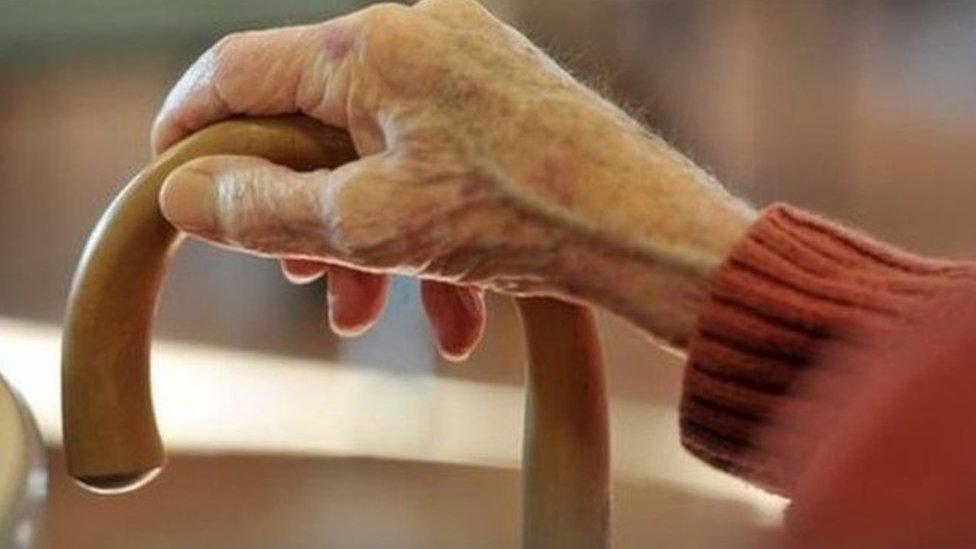Older brains 'fail to gauge grip strength'
- Published

Older people can drop heavy objects such as full kettles because their brains do not warn them to grip them tight enough, according to new research by Edinburgh scientists.
Psychologists at Heriot-Watt University tested 20 adults with an average age of 71, and 20 with an average age of 23.
They were tested by being shown black plastic cylinders of different sizes, but the same weight.
Participants had to say how heavy they thought an object would be.
They then had to say how heavy they thought it felt once they had lifted it up.
The Heriot-Watt team, working with other researchers in Exeter University in Devon, embedded sensors on top of each object to measure the grip forces that each person used when grasping and lifting the cylinders.
Both groups were equally susceptible to what the scientists call "size-weight illusion", thinking the smaller cylinders felt heavier than the larger ones.
This confirmed size guides perceptions of weight in younger and older people.
Identical force
However, while the younger group adjusted the amount of force they used to pick up the cylinders depending on what size they were, the older group did not They initially gripped and lifted the large and small objects with near-identical force.
Assistant professor Lauren Potter, of Heriot-Watt's psychology department, said: "If an object appears to be made from a heavy material, we'll initially lift it with more force than if it looked light. We do the same thing with larger objects compared to smaller ones.
"It now turns out that there is a further dimension, not only do we experience objects partly based on how they look, this changes as we get older.
"To compensate for 'normal' age-related decline in physical and cognitive ability, older adults may use mental shortcuts to guide how they act.
"They may be redirecting their cognitive resources away from using visual cues to predict an object's properties towards more demanding aspects of the task, such as having a steady lifting action."
Dr Potter said the team's findings had "important implications" for product design, and called for further research.
The study, How Prior Expectations Influence Older Adults' Perception and Action During Object Interaction, is published in the interdisciplinary journal Multisensory Research.